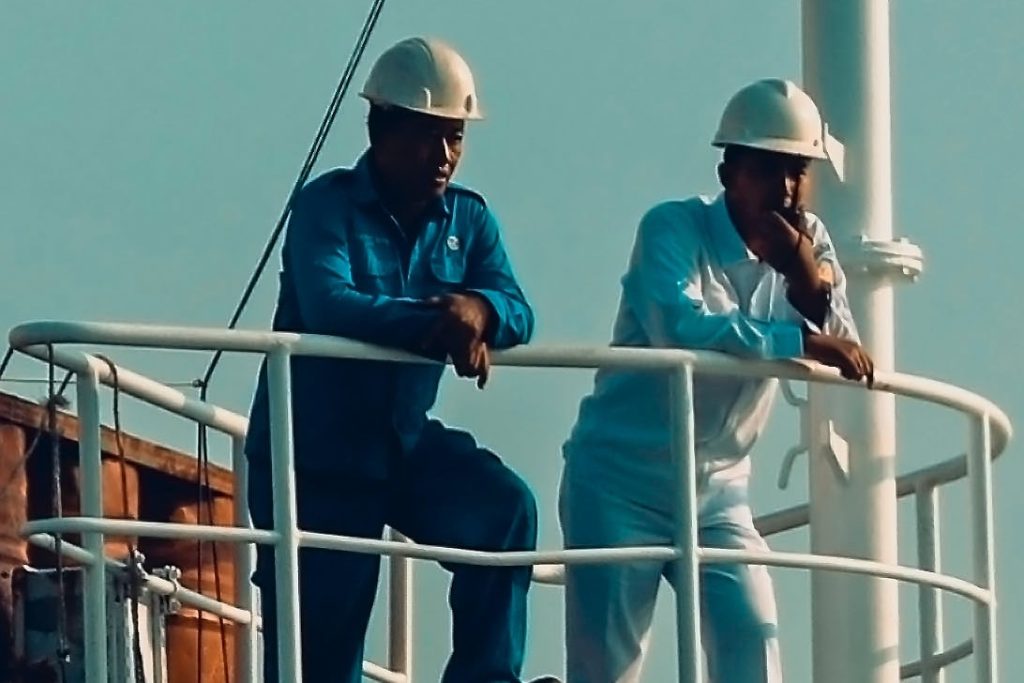
Safety communications have been at the heart of international rules on ship safety for around a century now but are now in the process of undergoing modernisation after the completion of a review of the 1999 GMDSS regime that was embarked upon in 2012. The review was completed in 2021 and adopted at MSC 105 in April 2022.
As a consequence of the review, some obsolete requirements were removed, and eleven resolutions were adopted that amended the performance standard of much of the equipment used on board ships.
One of the reasons for the review was a desire that GMDSS be opened up to satellite service providers beyond Inmarsat which had been granted a monopoly when GMDSS was first established.
That monopoly was broken a few years ago when Iridium was accepted as a service provider and Inmarsat itself was allowed to integrate its Fleet Broadband service into GMDSS.
Other providers are already some some way along the route towards becoming accepted and no doubt more will follow. One likely consequence of this is that maritime distress and safety services will alter so that as well as the international service, other systems will perhaps be able to provide a regional service with different carriage requirements.
This aspect of GMDSS modernisation is not without its problems as it is beginning to dawn that multiple service providers bring problems that were not thought of previously. The biggest issue is one of cost. At MSC 105, The MSC considered a report from the Correspondence Group on Dissemination of Maritime Safety Information (MSI) and Search and Rescue (SAR)-related information.
For GMDSS to be effective, it is vital that information is disseminated to ships and other users over every communication network accepted as part of GMDSS. Presently the cost of broadcasting this information is paid for by IMO member states to the service providers. When there was just one – or as now two – organisations involved the cost would have been minimal, but it is accepted that there are cost implications for information providers concerning the dissemination of information over multiple GMDSS mobile satellite services.
At MSC 105 it was agreed that dissemination of MSI and SAR related information was an integral service of the GMDSS and critical to preserving the safety of life at sea and, therefore, once a mobile satellite service was recognized by the Organization, it must then be used by all information providers covering its service area.
The MSC urged MSI and SAR information providers to take the necessary actions to expedite the use of all mobile satellite services recognized by the Organization providing services within their service areas for the dissemination of information to ships navigating in those areas.
At the same time, the Sub-Committee on Navigation, Communications and Search and Rescue (NCSR) was instructed to continue considering technical solutions for the dissemination and reception of MSI and SAR related information over multiple services, including interoperability issues and broadcast monitoring, with a view to addressing the operational and financial burden of disseminating the information to ships. This is something that will be addressed over future meetings of MSC.
Although the SOLAS Convention and the GMDSS were developed with commercial shipping in mind and apply only to ships over 300gt on international voyages, it should not be forgotten that many other ships and craft put to sea and sometimes are involved in safety incidents whether as victims or as aid providers.
Unless a flag state sets requirements for vessels such as private yachts, leisure craft, domestic ferries, cargo vessels, work boats and fishing boats there is no legal obligation for vessels to carry safety communications equipment or for those aboard to have any specific training in emergency and SAR procedures. Nevertheless, many of these ships do carry communications equipment that is of a type similar to GMDSS equipment. VHF radio is a typical example.
The growth in personal connectivity in recent years does however mean that a lot of such vessels may have communications equipment that is incompatible with GMDSS. In particular many people now carry smart phones as their sole means of communication across voice, text and internet platforms.
After MSC 105 this year, the IMO published MSC.1/Circ.803/Rev.1 – 16 May 2022 which contains guidelines for the participation of non-SOLAS ships in the GMDSS and guidance on the development of training materials for GMDSS operators on non-SOLAS ships. Being just 10 pages long, this document cannot substitute for a more comprehensive investigation into how non-SOLAS craft and their crews can benefit from participating in the GMDSS in some way.
It does, however, serve as a good introduction to the subject and should be brought to the attention of any owner or crew member on a non-SOLAS ship. To that end, it would be helpful if the owners and operators of non-SOLAS fleets were to ensure that their vessels were properly equipped and crew appropriately trained.
As personnel on leisure and fishing vessels probably feature most in maritime casualty statistics, they too would likely benefit from ending reliance on inappropriate cell phones or the like and ensure that they have at least the basic equipment to initiate an alert and to communicate with SAR operatives.
